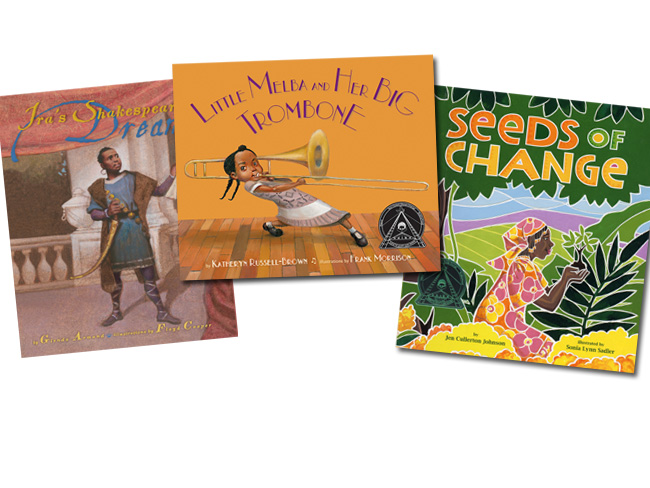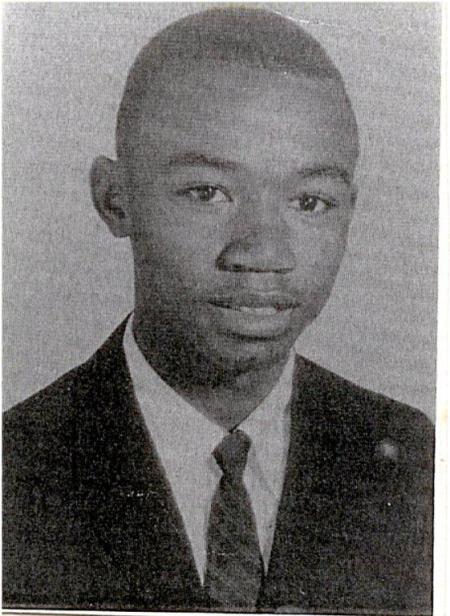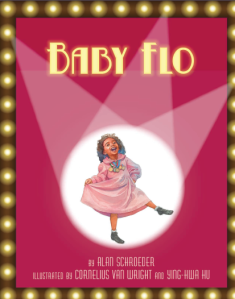 February is Black History Month, which was created to remember the important people and events in the history of the African diaspora and to honor the too-often neglected accomplishments of black Americans in every area of endeavor throughout our history. While ethnic heritage months can be problematic, they are also a good reminder to highlight the achievements of particular cultures, and can make people from those cultures feel acknowledged and appreciated. In this blog post, we’ve rounded up some of our best Black History Month resources. Continue reading
February is Black History Month, which was created to remember the important people and events in the history of the African diaspora and to honor the too-often neglected accomplishments of black Americans in every area of endeavor throughout our history. While ethnic heritage months can be problematic, they are also a good reminder to highlight the achievements of particular cultures, and can make people from those cultures feel acknowledged and appreciated. In this blog post, we’ve rounded up some of our best Black History Month resources. Continue reading
Tag Archives: African American history
8 Black History Month Books for Grades K-2
February is almost upon us! At Lee & Low, we believe that Black history is American history and should be celebrated and taught all year long. But February can be a great time to shine a spotlight on favorite books or freshen up a dated collection with new titles. Here are eight of our favorite Black History Month Books for kindergarten through second grade: Continue reading
Interview With Joseph McGill, Founder of the Slave Dwelling Project
 Today on the blog we are honored to be able to interview Joseph McGill, Founder of the Slave Dwelling Project, which works to preserve extant slave dwellings and organizes overnight stays in them to bring attention to the history and experiences of enslaved people. Welcome, Mr. McGill! Continue reading
Today on the blog we are honored to be able to interview Joseph McGill, Founder of the Slave Dwelling Project, which works to preserve extant slave dwellings and organizes overnight stays in them to bring attention to the history and experiences of enslaved people. Welcome, Mr. McGill! Continue reading
7 Core Values to Celebrate During Black History Month
The month of February is a time when many communities pause and celebrate the great contributions made by African Americans in history. At Lee & Low we like to not only highlight African Americans who have made a difference, but also explore the diverse experiences of black culture throughout history, from the struggle for freedom in the South and the fight for civil rights to the lively rhythms of New Orleans jazz and the cultural explosion of the Harlem Renaissance.
Celebrate Black History Month with Five Collections from LEE & LOW BOOKS
February is Black History Month. The origins of Black History Month began with historian Carter G. Woodson launching Negro History Week in 1926. Woodson felt that teaching African American history was essential for the survival of the African American race.
In 1969, students at Kent State University proposed expanding Black History Week to Black History Month. The first Black History Month was celebrated a year later. In 1976, Black History Month was recognized by the federal government and has been celebrated ever since.
Today, heritage months can be a double-edged sword. On one hand, relegating culturally diverse books to specific months of the year can mean these books are overlooked the rest of the year. It can also separate Black history from American history, when in fact black history is American history. Continue reading
Celebrate and Teach About Baseball with Toni Stone
It’s baseball season again. It’s also the 10th anniversary of Catching the Moon: The Story of a Young Girl’s Baseball Dream written by Crystal Hubbard and illustrated by Randy DuBurke. How can you celebrate both?
Voices from the Civil Rights Movement: Interview With Moses Teel Jr.
![]() As Fast As Words Could Fly tells the story of Mason, a teenager growing up in North Carolina who becomes one of the first black students to attend an all-white high school. In this guest post, we interview author Pamela M. Tuck’s father, Moses Teel Jr., whose experience during integration inspired the New Voices award-winning title.
As Fast As Words Could Fly tells the story of Mason, a teenager growing up in North Carolina who becomes one of the first black students to attend an all-white high school. In this guest post, we interview author Pamela M. Tuck’s father, Moses Teel Jr., whose experience during integration inspired the New Voices award-winning title.

Lee & Low: In the Author’s Note, it says that you used your “typing talent to defy the prejudices of people who considered [you] inferior.” Did you also participate in a typing contest similar to the one Mason was in? What was that experience like?
Moses Teel Jr.: Yes. In my typing class, we had five-minute timed typing exercises. Five strokes counted for one word and every error took one word away from your total word count. I participated in a lot of these classroom competitions and won. That’s what helped me qualify for the tournament. By the time I had to compete, I felt pretty confident in my skill and I stayed focused by telling myself, “I can do this.”
The Origins of the Coretta Scott King Award
![]() In this guest post, Dr. Henrietta M. Smith, Professor Emerita and the first African-American professor at the University of South Florida, School of Information shares her memories of how the Coretta Scott King Award began:
In this guest post, Dr. Henrietta M. Smith, Professor Emerita and the first African-American professor at the University of South Florida, School of Information shares her memories of how the Coretta Scott King Award began:
The news of the damage sustained by the boardwalk in Atlantic City during Hurricane Sandy brought back memories of where the Coretta Scott King Award started. This writer’s mind went back to an earlier time, to an American Library Association annual meeting in Atlantic City.  The year was 1969. Two librarians walking through the exhibit hall stopped by a booth where a poster of the late Martin Luther King Jr. was on display. This was the start of a genial conversation that evolved into the observation that never since the inception of the Newbery Medal in 1922 and the Caldecott Medal in 1938 had any award committee recognized the work of a person of color.
The year was 1969. Two librarians walking through the exhibit hall stopped by a booth where a poster of the late Martin Luther King Jr. was on display. This was the start of a genial conversation that evolved into the observation that never since the inception of the Newbery Medal in 1922 and the Caldecott Medal in 1938 had any award committee recognized the work of a person of color.
John Carroll, a publisher from a small company in New York, overheard the conversation. It was reported that he said, rather matter of factly, “Then why don’t you ladies establish your own award?” The seed was planted. Before the conference ended, in an informal meeting on the boardwalk in Atlantic City under the leadership of Glyndon Greer and Mabel McKissick, the idea of a award for African American authors was shared with a group of African American librarians, including Augusta Baker, Charlemae Rollins, Ella Mae Yates, and Virginia Lacy Jones, to name a few. At this seaside gathering, the struggle for recognition began.
Black History Month: Why Remember Florence “Baby Flo” Mills?
![]() Everyone knows Frederick Douglass and Martin Luther King, Jr., but there are many other African Americans who have contributed to the rich fabric of our country but whose names have fallen through the cracks of history.
Everyone knows Frederick Douglass and Martin Luther King, Jr., but there are many other African Americans who have contributed to the rich fabric of our country but whose names have fallen through the cracks of history.
We’ve asked some of our authors who chose to write biographies of these talented leaders why we should remember them. We’ll feature their answers throughout Black History Month.
Today, Alan Schroeder shares why he wrote about Florence Mills in Baby Flo: Florence Mills Lights Up the Stage:


